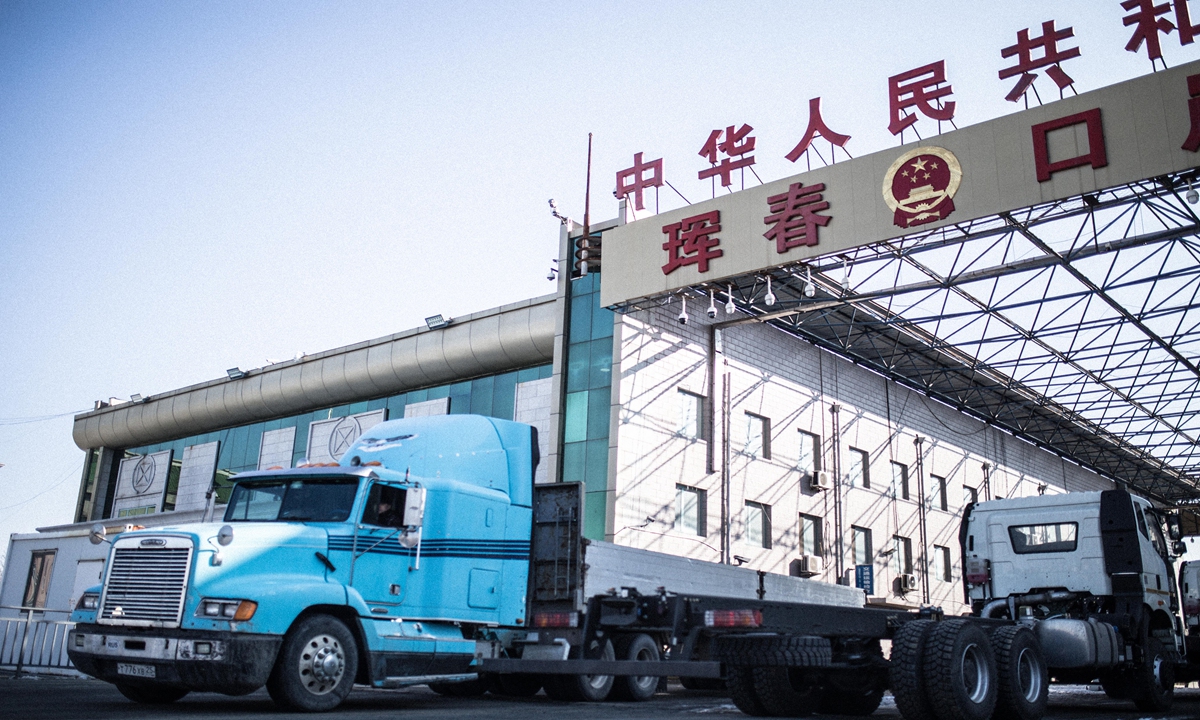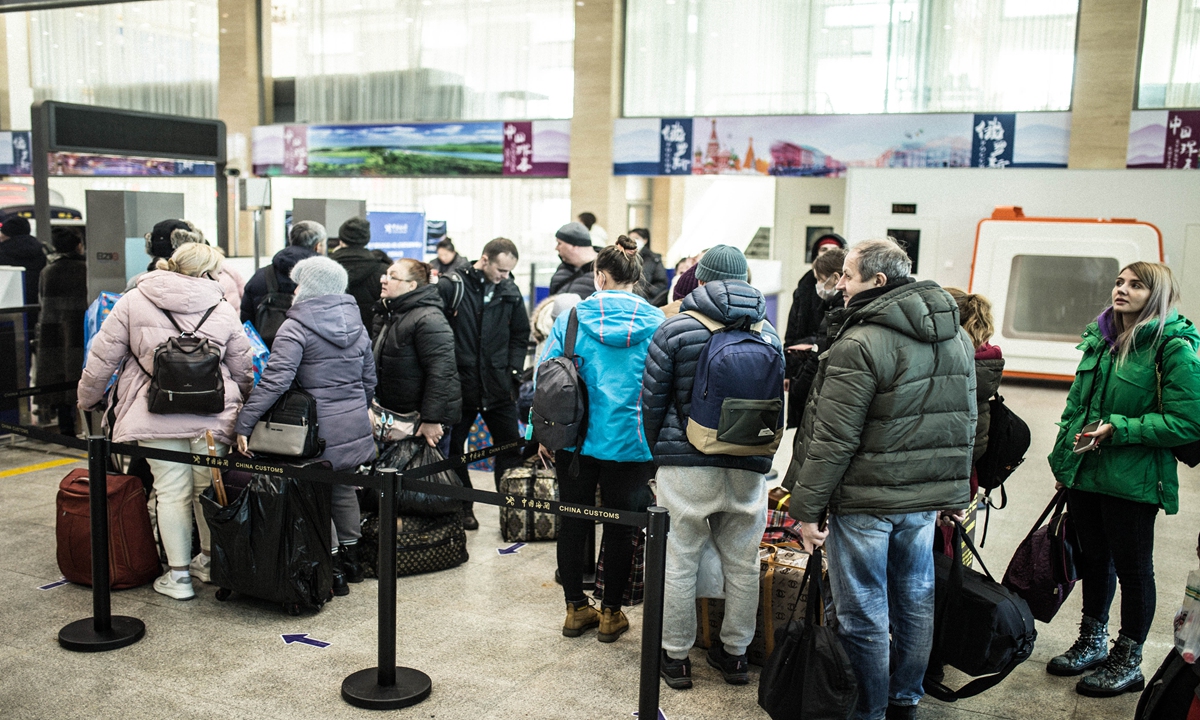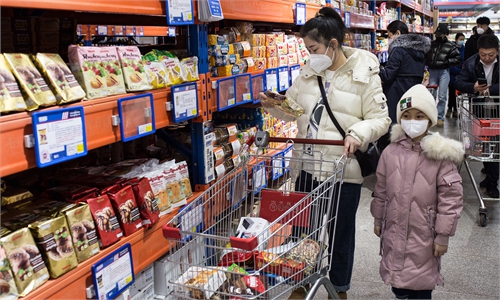GT on the spot: Hunchun port bordering Russia, NK revives again after downgrading of COVID-19 management

The Hunchun port in Northeast China's Jilin Province remains busy on February 13, 2023. Photos: Shan Jie/GT

The Hunchun port in Northeast China's Jilin Province remains busy on February 13, 2023. Photos: Shan Jie/GT
With trucks lining up at checkpoints, cross-border trains whizzing by and travelers flocking back to town, the port city of Hunchun in Northeast China's Jilin Province is getting busy again as it was before the COVID-19 epidemic three years ago.
Global Times reporters on Monday afternoon saw dozens of travelers in the departure hall at Hunchun port, using their passports and QR codes obtained in advance to quickly pass through Chinese customs and border inspection.
Over the weekend, Hunchun, an important border city neighboring Russia and North Korea, welcomed its first peak of travelers in three years. More than 80 people from Russia holding valid visas entered China via this port on Friday.
Sasha Savalyka, who works for a large tourism company in Vladivostok, Russia, told the Global Times that while staying in Hunchun, she talked with her business partners about resuming cross-border tourism.
She said that she was very excited to return to Hunchun after three years. "I enjoy the good environment, beautiful scenery and delicious food here. It is very popular among Russian tourists," she said.
Travel with valid visas resumed at Hunchun port as early as January 8, the day China downgraded its COVID-19 management from Class A to Class B, Li Gang, a deputy director at the management and service center of the entry and exit station of the Hunchun port, told the Global Times on Monday.
Land transportation via Hunchun port is also picking up. Outside the hall, new trucks built by China FAW Group, which is based in Jilin, waited in line to enter Russia, along with refrigerated trucks that had just been unloaded.
On Monday morning, a 45-car freight train loaded with coal arrived at the Hunchun railway port.
Li said that the port maintained freight shipments during the three years of the COVID-19 epidemic while applying non-contact inspections to prevent outbreaks.
It has been conducting 24/7 operation since September last year. In 2022 alone, 2.7 million tons of coal arrived at the port, according to Li.
Hunchun, administered by the Yanbian Korean autonomous prefecture, has four ports, two to Russia and two to North Korea. With Hunchun serving as a distribution center, international logistics operators can realize sea-railway-land combined transport.
Goods from Russia, Japan, South Korea and even South America could reach the nearby port and be transported into China, and vice versa, the Global Times learned.
Thanks to its unique location, Hunchun has become a distribution center for seafood imports and exports. During the epidemic, business in this area operated in an orderly manner, and business owners look forward to further development after the epidemic.
Zhao Kuizheng, manager of the Hunchun X.Y. Seafood Co, told the Global Times that the Hunchun government offered strong support during the epidemic to ensure continuous transportation and imports of frozen seafood while ensuring efficient implementation of the strict policies.
China applied strict inspection and disinfection policies for imported cold-chain seafood.
"We required our Russian partner to apply the same strict disinfection policies as ours, including negative nucleic acid testing results of all related personnel, disinfection reports for all imported products and closed-loop management in sourcing the products," Zhao said.
Zhao said that he is confident about business due to the adjustment of China's COVID-19 policies and the gradual resumption of cross-border exchanges in Hunchun.


